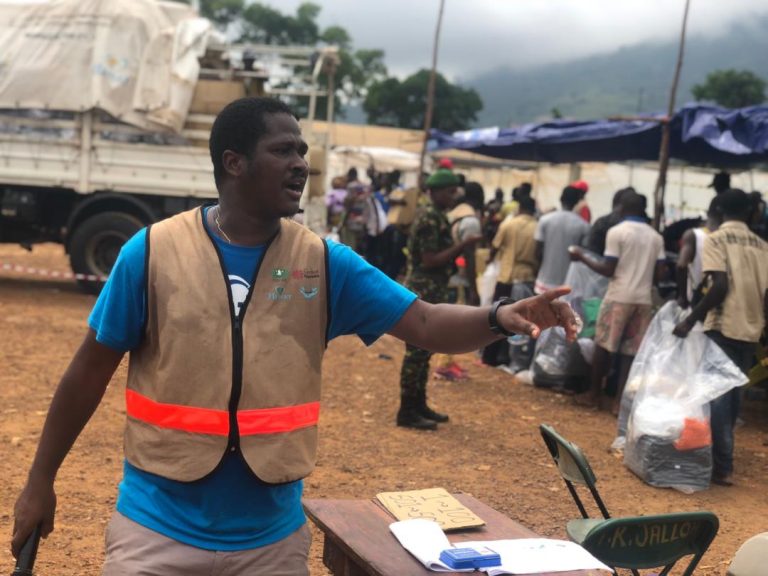The Global North is not the only one facing challenges due to the Covid-19 pandemic. Population groups in the Global South, which have already been severely affected by other crises, are also struggling with the virus and its consequences, and are confronted with additional risks.
Against this background, many actors in humanitarian aid and development cooperation ask themselves: How does the COVID-19 pandemic interfere with the humanitarian and development challenges in the Global South? Can the assistance provided in the context of COVID-19 be a useful complement to existing programmes? Can it even advance important policy agendas such as localisation and the Triple Nexus? Or does the COVID-19 assistance rather lead to setbacks in humanitarian aid and development cooperation?
To answer these and other important questions regarding the international Covid-19 response, the Centre for Humanitarian Action (CHA) organised a webinar on August 21, 2020, called
COVID-19 – comprehensive response or development reversal?
The following speakers were on the panel:
- Abukar Samow Mohamed (Nutrition and Health Coordinator, WARDI, Somalia)
- Ali Zaidi (Development Consultant, Pakistan)
- Henriette Sachse (Transitional Development Assistance, Federal Ministry for Economic Cooperation and Development, BMZ)
- Howard Mollett (Head of Humanitarian Policy, CAFOD, UK)
- Facilitator: Darina Pellowska (CHA)
The full recording of the webinar can be watched here:
If you want to jump to the panelists’ inputs in the recording directly, just click on the following hyperlinks:
Howard Mollet (CAFOD) looked at the issue from the global policy perspective and explored the problematics related to humanitarian governance, resilience and localisation.
Abukar Samov Mohamed (WARDI Relief & Development Initiatives) then highlighted concrete challenges in the context of Somalia – one of the German government’s focus countries for the implementation of the Triple Nexus. He highlighted the operational challenges in coordinating existing needs and ongoing aid programmes with the COVID-19 response, and described how UN and NGO structures could support the public health system that is struggling with the pandemic.
Abukar’s insights from Somalia were supplemented with the perspective from Pakistan, presented by development consultant Ali Zaidi. Besides the interference of the COVID-19 response and other humanitarian and development sectors, he underlined the exacerbating effects of the pandemic on the shrinking civil space in Pakistan. Furthermore, he addressed the performance of different organisational and fundraising structures within the aid system, linking COVID-19 impacts in the Global North with the events in the Global South.
As the final panelist, Henriette Sachse (German Federal Ministry for Economic Cooperation and Development, BMZ) informed about the COVID-19 response programme of the BMZ. She explained both short-term adjustments and long-term perspectives. Among other things, she also addressed the opportunities that the COVID-19 response can have as a practical test for better localisation and nexus policies.
The panelists’ inputs were supplemented by a discussion round, which also included questions from the live chat. More than 120 participants attended the online event.





